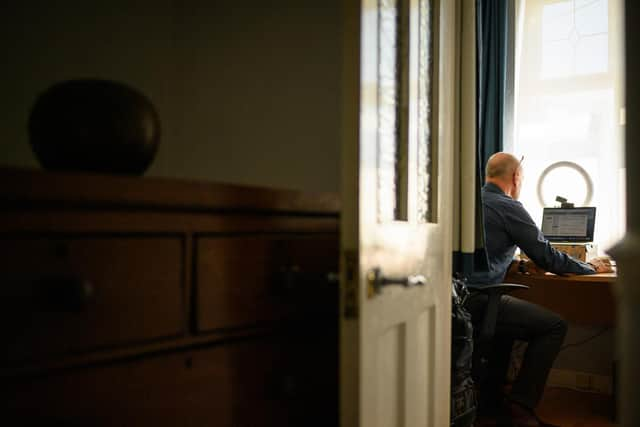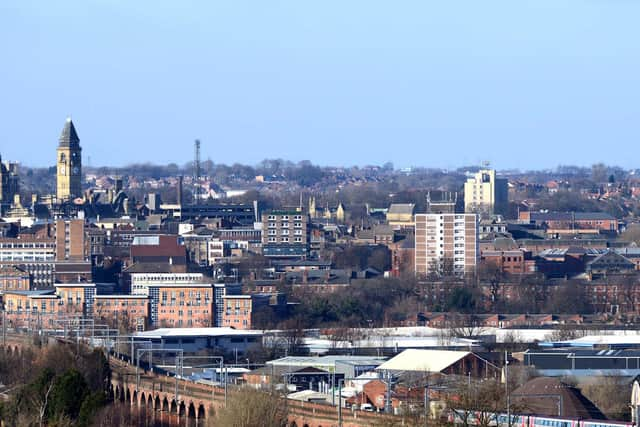Lockdown survey: 85 per cent in Wakefield say pandemic has affected their mental health
and live on Freeview channel 276
A survey of more than 200 people by the district's Healthwatch group found more than a third said coronavirus had had a "significant" or "very significant" effect on their mental wellbeing.
Just over half said they'd felt "some impact" since restrictions were first imposed in late March.
Advertisement
Hide AdAdvertisement
Hide AdThe results also showed 61 per cent didn't know where to access mental health support during lockdown, while some patients said they'd avoided seeking treatment for physical problems because they thought the NHS would be too busy to help.


One local patient said: "I have ongoing unresolved problems that I feel I should be continuing to see my doctor about, but I don't feel like my problems are a priority right now.”
Another respondent said: "I had symptoms of Covid-19, was really ill and struggling to breathe but I didn't ring 999 as I thought they'd be too busy.
"I did ring 111 and was told someone would call back within the hour - it
Advertisement
Hide AdAdvertisement
Hide Adwas six hours later. It was scary not being able to see a doctor.”


Gary Jevon, the CEO of Wakefield Healthwatch said the survey had thrown up some "concerning" findings, but added that the response from the local health service had been "encouraging".
"We were getting lots of feedback early on in lockdown from people saying they were reluctant to access health and care services," Mr Jevon said.
"That was fed back and it led to the NHS communicating that it was still open and there to help.
Advertisement
Hide AdAdvertisement
Hide Ad"Since then we have seen more people accessing the service."


Healthwatch's findings also suggested people had relied on family and friends for mental wellbeing support far more than on the system itself during lockdown.
The charity Mind said around a quarter of people across the country had tried to access professional help, but were unable to do so.
Anxiety over sick relatives, feelings of isolation and financial insecurity are all believed to be behind the rise in those experiencing problems.
Advertisement
Hide AdAdvertisement
Hide AdTurning Point, a charity which offered talking therapy to 8,000 people in Wakefield last year, said it had remained fully active during lockdown, having moved to telephone and video sessions.
Senior operations manager Jason Carr said: "We have seen a significant reduction in the number of people approaching the service for help during the lockdown but numbers have started to increase over the past few weeks.
"This may be because people believed the service was closed, they may have felt the problems they were experiencing weren't "bad enough", considering the global crisis, or they may have been worried about catching coronavirus.
"Lots of people have experienced increased stress and worry as a result of COVID-19 and this can have a detrimental effect on people’s wellbeing.
Advertisement
Hide AdAdvertisement
Hide Ad"Some people will be struggling with grief and some will have had to deal with traumatic experiences."
Wakefield Clinical Commissioning Group (CCG), which oversees local health services, recently launched a #StillHereToHelp campaign in a bid to address those reluctant to access the physical and mental health treatment they may need.
Director Mel Brown said: "We are working closely with Healthwatch and our own regular user groups to understand how the pandemic is affecting people’s access to services so we can adapt, respond and tailor our offerings to their needs.
"In May, we launched a free 24 hour helpline offering support to adults registered with a Wakefield GP who are experiencing emotional distress.
Advertisement
Hide AdAdvertisement
Hide Ad"This provides a listening ear, emotional support and guidance to anyone with new or existing mental health conditions. It is also providing information, advice and support to carers. The helpline number is 0800 183 0558."
Where else can I access mental health support?
Wakefield's Turning Point talking therapy service can be contacted on 01924 234860 or by visiting https://talking.turning-point.co.uk/wakefield/refer-yourself/
Mind has coronavirus-specific advice and support here https://www.mind.org.uk/information-support/coronavirus/coronavirus-and-your-wellbeing/
Local Democracy Reporting Service